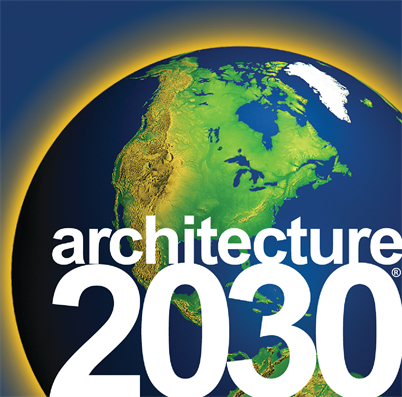Full Schedule
Full Schedule
- Monday, October 9, 2023
-
7:30 AM - 8:45 AM PSTContinental breakfast
-
7:30 AM - 6:30 PM PSTRegistration
-
8:30 AM - 5:00 PM PSTBoard of Directors Meeting (Private Event)
-
9:00 AM - 5:00 PM PSTWorkshop 3 - Heritage at Risk - Improving Outcomes for Historic Sites Impacted by Natural Disasters
-
9:00 AM - 5:30 PM PSTWorkshops
- Tuesday, October 10, 2023
-
7:30 AM - 8:45 AM PSTContinental Breakfast
-
7:30 AM - 6:30 PM PSTRegistration
-
8:00 AM - 12:00 PM PSTField Sessions - Half Day (Morning)
CE: 3 -
8:00 AM - 5:00 PM PSTField Sessions - Full Day
CE: 6 -
8:00 AM - 6:00 PM PSTWorkshop 2 - New Technologies for Documenting Old Buildings (1-day Workshop)
-
9:00 AM - 5:00 PM PSTDay 2 - Workshop 1 - 20th Century Engineered Wood Products: Plywood and Laminated Timber
-
9:00 AM - 5:00 PM PSTWorkshop 3 - Heritage at Risk - Improving Outcomes for Historic Sites Impacted by Natural Disasters (Day 2)
-
1:00 PM - 5:00 PM PSTField Sessions - Half Day (Afternoon)
CE: 3 - Wednesday, October 11, 2023
-
7:30 AM - 8:45 AM PSTContinental Breakfast
-
7:30 AM - 6:30 PM PSTRegistration
-
8:00 AM - 9:00 AM PSTStudent Scholar Meet & Greet Breakfast
-
8:00 AM - 12:00 PM PSTField Sessions - Half Day (Morning)
CE: 3 -
8:00 AM - 5:00 PM PSTExhibit Hall Load-In
-
9:00 AM - 12:00 PM PSTCollege of Fellows Business Meeting
-
9:00 AM - 12:00 PM PSTLatin American Caribbean Chapter (LACC) Business Meeting
-
9:00 AM - 5:00 PM PSTPreservation Engineering Technical Committee (PETC), Student Design Teams Workshop
-
12:00 PM - 1:00 PM PSTTechnical Committee on Documentation Meeting
-
12:00 PM - 1:30 PM PSTPublications Committee
-
12:00 PM - 2:30 PM PSTStudent Scholar Practice Sessions
-
12:30 PM - 1:30 PM PSTPreservation Engineering Technical Committee
-
1:30 PM - 3:00 PM PSTStudent Documentation Competition Presentation
-
1:30 PM - 3:00 PM PSTTechnical Committee on Modern Heritage
-
3:30 PM - 5:00 PM PSTWelcome & Opening Keynote
-
5:00 PM - 8:00 PM PSTExhibit Gala & Reception
- Thursday, October 12, 2023
-
7:30 AM - 9:00 AM PSTBreakfast w/Exhibitors
-
7:30 AM - 9:00 AM PSTPartnership & Outreach Committee Meeting
-
7:30 AM - 9:00 AM PSTTechnical Committee on Sustainable Preservation Meeting
-
7:30 AM - 9:00 AM PSTTechnical Committees on Materials Meeting
-
7:30 AM - 6:30 PM PSTRegistration
-
9:00 AM - 10:30 AM PSTCOF Roundtable
-
9:00 AM - 10:30 AM PSTCS1. 1 - Innovation in Adaptation
CE: 1.5 -
9:00 AM - 10:30 AM PSTCS2.1 Climate Preparedness
CE: 1.5 -
9:00 AM - 10:30 AM PSTCS3.1 Cultural Conservation
CE: 1.5 -
9:00 AM - 5:00 PM PSTPETC Student Design Teams Build
-
10:30 AM - 11:00 AM PSTPreservation Engineering Technical Committee (PETC), Student Design Teams Build
-
10:30 AM - 11:00 AM PSTRefreshment Break @ Exhibit Hall
-
11:00 AM - 12:30 PM PSTCS1.2 Sustainable Historic Buildings and Materials
CE: 1.5 -
11:00 AM - 12:30 PM PSTCS2.2 Embodied / Operational Carbon
CE: 1.5 -
11:00 AM - 12:30 PM PSTCS3.2 Civil Rights in the United States
CE: 1.5 -
12:30 PM - 2:00 PM PST2023 Student Recognition Lunch (Scholars, PETC, TCDoc)
-
12:30 PM - 2:00 PM PSTLunch On Your Own
-
2:00 PM - 3:30 PM PSTCS1.3 Documentation Technology
CE: 1.5 -
2:00 PM - 3:30 PM PSTCS2.3 Solutions for Climate Adaptations
CE: 1.5 -
2:00 PM - 3:30 PM PSTCS3.3 Cultural Restoration
CE: 1.5 -
3:30 PM - 4:00 PM PSTPreservation Engineering Technical Committee (PETC), Student Design Teams Load Testing
-
3:30 PM - 4:00 PM PSTRefreshment Break @ Exhibit Hall
-
4:00 PM - 5:30 PM PSTAnnual General Meeting + Recognition (preview and recognized professionals)
-
6:30 PM - 7:00 PM PSTAIA HRC Reception
-
7:00 PM - 8:30 PM PSTCoF Installation & Keynote
-
8:30 PM - 11:30 PM PSTChapters Mixer
- Friday, October 13, 2023
-
7:30 AM - 9:30 AM PSTContinental Breakfast
-
7:30 AM - 6:30 PM PSTRegistration
-
8:00 AM - 9:15 AM PSTChapter Breakfast
-
9:30 AM - 11:00 AM PSTCS1.4 Preserving and Stabilizing Historic Materials
CE: 1.5 -
9:30 AM - 11:00 AM PSTCS2.4 Unreinforced Masonry (URM) Structures
CE: 1.5 -
9:30 AM - 11:00 AM PSTCS3.4 Culture and Interpretation
CE: 1.5 -
11:00 AM - 12:00 PM PSTBoard of Directors Meeting #2 (Private Event)
-
11:00 AM - 1:00 PM PSTLunch On Your Own
-
1:15 PM - 2:45 PM PSTCS1.5 Understanding Historic Construction
CE: 1.5 -
1:15 PM - 2:45 PM PSTCS2.5 Adapting Historic Envelopes
CE: 1.5 -
1:15 PM - 2:45 PM PSTCS3.5 The Culture of Technology
CE: 1.5 -
3:00 PM - 4:00 PM PSTTechnical Committee on Codes & Standards Meeting
-
3:00 PM - 4:00 PM PSTTraining & Education Committee Meeting
-
3:00 PM - 5:00 PM PSTPETC Student Design Presentations
-
6:30 PM - 9:30 PM PSTAPT Awards Banquet
- Saturday, October 14, 2023
-
7:30 AM - 8:30 AM PSTContinental Breakfast - Symposium ONLY
-
8:30 AM - 5:00 PM PSTSymposium - Aging Composite Materials and Assemblies: Sustainable Repair & Reinvestment

